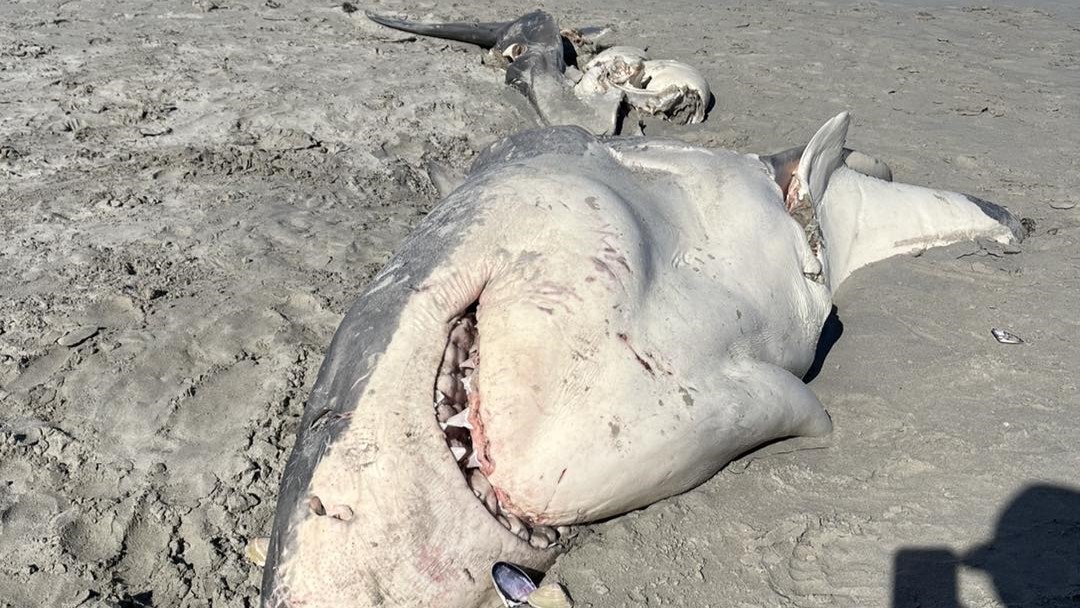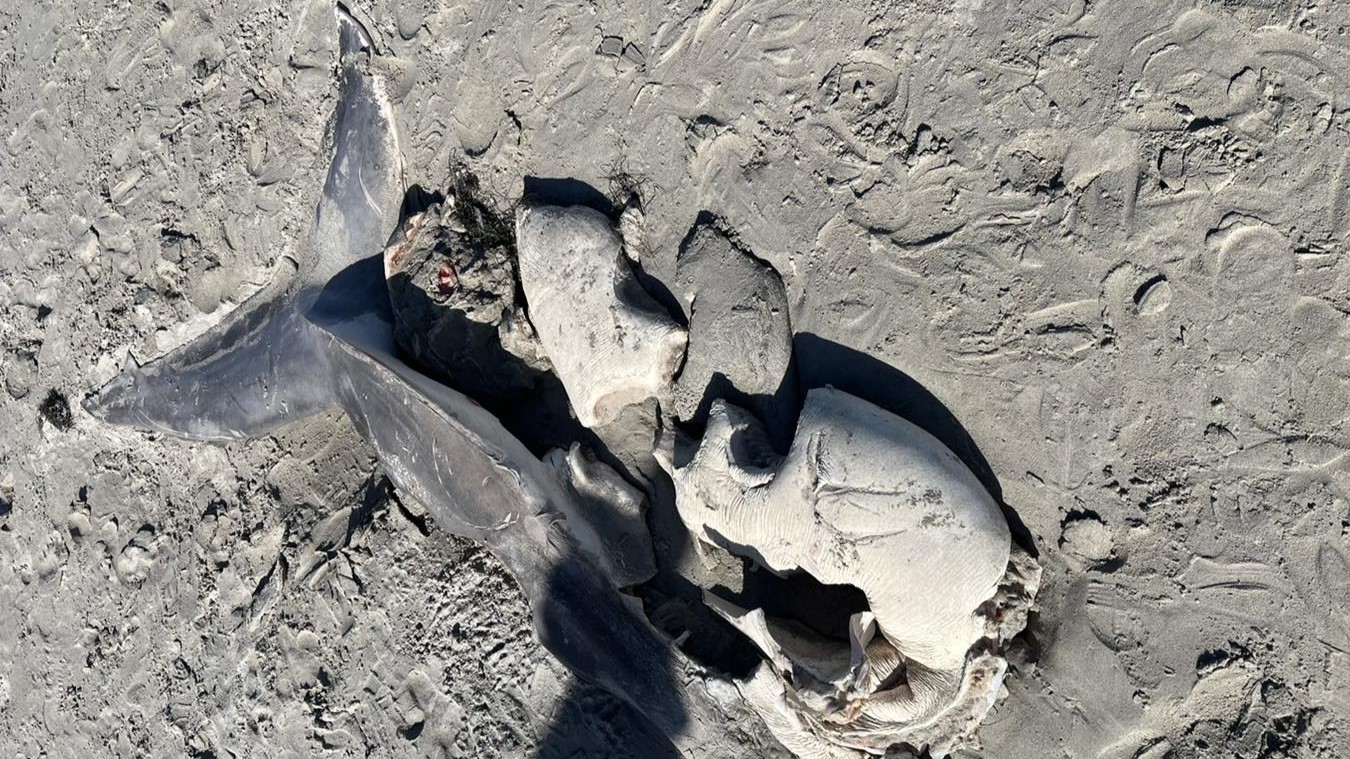Great white shark ripped in 2 was 'loaded' with orca DNA, scientists say
Scientists have analyzed the remains of a great white shark that washed up in Australia in October and confirmed orcas disemboweled the predator to eat its liver — a first in these waters.

A mutilated great white shark that washed up in Australia in October was mauled by orcas and "loaded" with its attackers' DNA, scientists have confirmed.
Only the shark's head and spine remained when it appeared on a beach in Portland, Victoria, fueling speculation that orcas disemboweled the great white shark (Carcharodon carcharias) to feast on its liver — similar to attacks that have been recorded off the coast of South Africa for several years.
A necropsy has now revealed orcas (Orcinus orca), also known as killer whales, were indeed responsible for the gruesome attack.
"Inspection of the shark [showed] really characteristic bite marks right in the pectoral girdle, so right between those fins under the belly, that are quite typical of killer whales where they effectively suck out the liver," Adam Miller, an associate professor in aquatic ecology and biodiversity at Deakin University in Victoria who led the analysis, told the Australian broadcaster ABC Radio Melbourne.
The shark — which scientists estimate measured over 16 feet (4.9 meters) long when alive — provides the first evidence of orcas predating on a great white off Australia's coast.

Orcas in these waters are known to kill blue sharks (Prionace glauca) and shortfin mako sharks (Isurus oxyrinchus) to eat their livers, Miller said. Researchers suspected that some great whites may have met the same fate due to several aggressive interactions recorded off Kangaroo Island and the Neptune Islands in southern Australia, but it had never been confirmed.
Sign up for the Live Science daily newsletter now
Get the world’s most fascinating discoveries delivered straight to your inbox.
Miller and his colleagues worked in partnership with First Nations groups and government authorities to acquire the carcass, enabling them to analyze genetic samples and swabs of the shark's bite wound. "We were able to confirm that those bite wounds were just loaded with killer whale DNA, so it's a bit of a smoking gun," he said.
A group of around seven orcas was sighted in nearby Bridgewater Bay a couple of days before the great white shark washed up in Portland, Miller said.
Two orca pods are known to live in Australian waters, he said, and they "have quite distinctive feeding behaviors and predation behaviors." But behaviors are sometimes learned and shared between pods, Miller added. "Their communication is pretty amazing," he said. "Behaviors are picked up by one pod [from] the neighboring pod through direct communication."
It's unclear which pod is responsible for attacking the great white shark and whether the behavior is widespread in these waters. Frequent predation by orcas could spell trouble for the Australian population of great whites, which is already down to a "critically low number of breeding individuals," Miller said.
"From a conservation point of view it's significant, but we don't know how frequently it's happening so we'll keep an eye on things," he added.

Sascha is a U.K.-based staff writer at Live Science. She holds a bachelor’s degree in biology from the University of Southampton in England and a master’s degree in science communication from Imperial College London. Her work has appeared in The Guardian and the health website Zoe. Besides writing, she enjoys playing tennis, bread-making and browsing second-hand shops for hidden gems.










